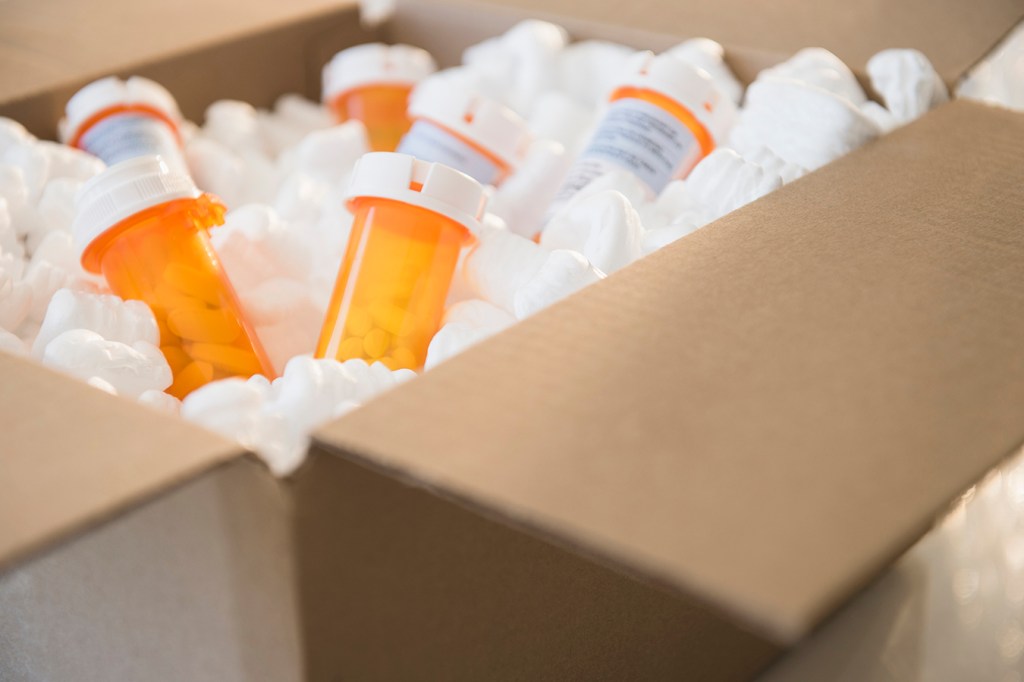WASHINGTON — The final version of the massive opioid bill Congress released Wednesday would grant the Food and Drug Administration new powers to crack down on drug imports, but it also includes a provision — nearly killed in the Senate — to shield people who are just trying to buy cheaper, needed prescription medication from other countries.
Broadly, the bill seeks to enlist the FDA in combating the opioid crisis by mandating that the agency take steps to accelerate development of non-opioid painkillers and to limit the supplies of the drugs, both illegal and legitimate, that claimed the lives of more than 49,000 people last year.
Among those steps, the bill expands the FDA’s power to “debar” people “from importing or offering for import into the United States a drug” if they are violating any of a number of regulations, including importing “mislabeled” medications, which includes any from overseas.
In the original House version of the bill, there was also a provision that defined those importers to exclude regular people who were importing personal prescriptions from foreign countries. That definition had been cut without explanation from the Senate’s version of the bill.
Congressional staffers who spoke on background to describe internal negotiations said the senators eliminated the protection because they believed it was unnecessary. The FDA already has discretion to look the other way on personal imports and told lawmakers it has no intention of changing the policy, staffers said.
Still, advocates for importation of cheaper drugs raised a red flag, noting that policies are not permanent and could be changed at any time absent legislation.
“I believe pharma lobbyists tried to piggyback language onto this bill to give FDA greater authority to stop importation of lower-cost, non-controlled medicines — ones having nothing to do with the opioid crisis, whether wholesale or personal,” said Gabriel Levitt, the president of PharmacyChecker.com, which serves as a clearinghouse for people trying to buy prescriptions from regulated foreign pharmacies. “If that’s the case, then they did not get everything they wanted.”
PhRMA, the lobbying arm of the pharmaceutical industry, could not immediately respond to questions about the shifts in the bill, but praised the overall goal of the broader measure.
“We applaud Congress for producing bipartisan, bicameral legislation that is a comprehensive approach to combating the opioid addiction crisis,” spokeswoman Priscilla VanderVeer said in a statement. “We look forward to the final legislation moving swiftly through the House and Senate and then on to the President’s desk to be signed into law.”
Indeed, the definition appears to have been added back to help forestall any controversy that might have interfered with swift passage of a measure that lawmakers hope to tout for the rest of campaign season. The bill is expected to be passed by the House this week and the Senate next week.
While lawmakers who at first removed the language may have seen it as unnecessary, advocates saw it, if not as a major victory, at least as a significant step in recognizing the legitimacy of importing medication from places where it is less expensive.
“That this language was put back in the bill is very helpful because now personal drug importation has greater recognition under law as different from illegal wholesale importation and worthy of protection,” said Levitt. “For those people who rely on lower-cost personal imports from pharmacies in Canada and other countries, this is very good.”
Millions of Americans every year seek prescriptions from overseas and Canada. Many millions more don’t take or thin out their prescribed medications, often because of costs. According to the Centers for Disease Control and Prevention, almost 8 percent of Americans do not take their medication as prescribed, and more than 15 percent seek cheaper alternatives from their doctor.
The consequences of non-adherence are on a par with the opioid crisis. The failure of people to take medication properly kills about 125,000 every year and costs the health care system between $100 billion and $289 billion, according to studies.
This story was produced by Kaiser Health News, an editorially independent program of the Kaiser Family Foundation.
